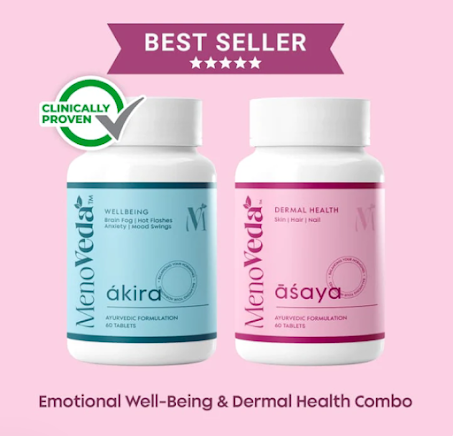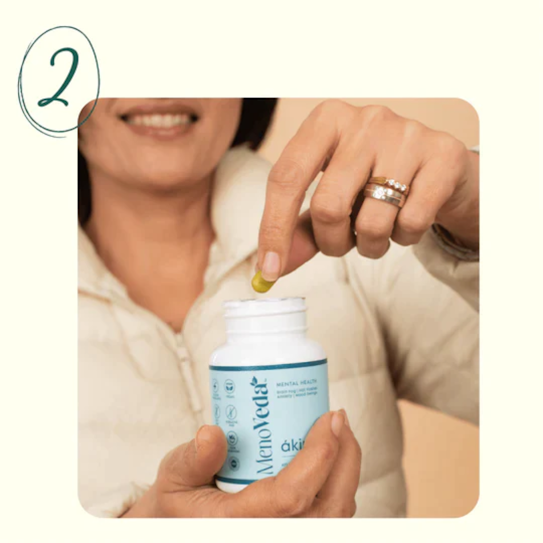10 Menopausal problems and symptoms
Menopause is a natural phase in a woman's life, signaling the end of reproductive years. While it is a normal and inevitable transition, the accompanying symptoms and problems can vary widely among individuals. In this document submission, we explore 10 common problems and symptoms associated with menopause, shedding light on how menopause supplements can play a supportive role in managing this transformative stage.
1. Hot Flashes:
Hot flashes are one of the hallmark symptoms of menopause. These sudden sensations of heat, often accompanied by sweating and a flushed face, can be disruptive to daily life. Menopause supplements containing ingredients like black cohosh and soy isoflavones are believed to help alleviate hot flashes.
2. Night Sweats:
Similar to hot flashes, night sweats involve intense sweating during sleep. This can lead to disrupted sleep patterns and fatigue. Supplements with phytoestrogens, which mimic the effects of estrogen, may contribute to regulating body temperature and reducing night sweats.
3. Mood Swings:
Hormonal fluctuations during menopause can impact mood, leading to irritability, anxiety, or mood swings. Menopause supplements often include herbs like St. John's wort and ginseng, known for their potential mood-stabilizing effects.
4. Insomnia:
Changes in hormone levels, coupled with other menopausal symptoms, can contribute to sleep disturbances. Some menopause supplements contain melatonin, a hormone that regulates sleep-wake cycles, to help manage insomnia during this period.
5. Vaginal Dryness:
Decreased estrogen levels can result in vaginal dryness, causing discomfort and pain during intercourse. Menopause supplements with ingredients like omega-7 fatty acids or vitamin E may support vaginal health and moisture.
6. Weight Gain:
Changes in metabolism and hormonal fluctuations can lead to weight gain during menopause. Menopause supplements often incorporate ingredients like green tea extract or chromium, believed to support metabolism and weight management.
7. Bone Health Issues:
Estrogen plays a crucial role in maintaining bone density, and its decline during menopause can lead to an increased risk of osteoporosis. Supplements containing calcium, vitamin D, and magnesium are commonly recommended to support bone health.
8. Memory Issues:
Some women experience cognitive changes during menopause, including issues with memory and concentration. Menopause supplements with ingredients like ginkgo biloba or omega-3 fatty acids may aid cognitive function.
9. Joint Pain:
Joint pain and stiffness are reported by some women during menopause. Supplements with anti-inflammatory properties, such as turmeric or ginger, may help alleviate joint discomfort.
10. Hair Thinning:
Changes in hormonal balance can affect hair health, leading to thinning or loss. Menopause supplements with biotin, vitamins A and E, and other nutrients may support hair growth and health.
Role of Menopause Supplements:
Hormonal Support:
Menopause supplements often contain phytoestrogens, which mimic the effects of estrogen in the body. These compounds may help balance hormonal fluctuations and alleviate symptoms like hot flashes and mood swings.
Nutritional Support:
Many menopause supplements include vitamins, minerals, and antioxidants that support overall health. This nutritional support can help address deficiencies that may arise during menopause.
Herbal Remedies:
Herbal ingredients like black cohosh, red clover, and dong quai are commonly found in menopause supplements due to their traditional use in managing menopausal symptoms. These herbs may offer natural relief for various issues.
Bone Health Formulas:
Some menopause supplements focus on promoting bone health by providing essential nutrients like calcium, vitamin D, and magnesium. This is crucial for preventing osteoporosis during and after menopause.
Adaptogens for Stress:
Adaptogenic herbs like rhodiola or ashwagandha may be included in menopause supplements to help the body adapt to stress, supporting mental and emotional well-being.
Conclusion:
Menopause is a unique and transformative phase in a woman's life, and the challenges it brings vary widely from person to person. Menopause supplements, with their blend of hormonal support, nutritional elements, and herbal remedies, can provide a holistic approach to managing the symptoms and problems associated with this transition. It's essential for women to consult with healthcare professionals before incorporating supplements into their routine to ensure they are tailored to individual needs and health conditions. Embracing a comprehensive approach, which may include lifestyle changes alongside targeted supplements, can empower women to navigate menopause with greater comfort and well-being.




Comments
Post a Comment